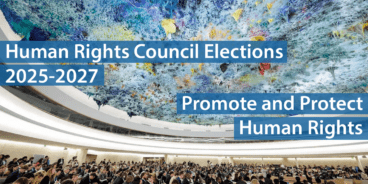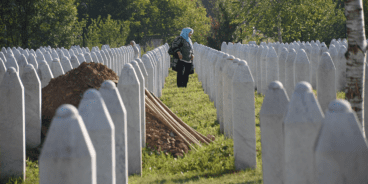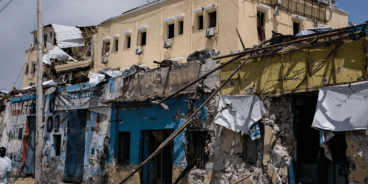
Remarks at the Ministerial Side Event on “Prevention of Genocide: Divided Societies and Election-Related Violence”
The following remarks were delivered by Executive Director Dr. Simon Adams at the 26 September Ministerial side event on “Prevention of Genocide: Divided Societies and Election-Related Violence” during the Opening of the UN General Assembly.
Thank you your Excellencies, the foreign ministers of Belgium and Ghana. Thank you Mr. Adama Dieng, Special Adviser on the Prevention of Genocide, and the distinguished panelists. It is an honor to be invited here today as a representative of civil society.
All too often in the world we see elections turn from a positive expression of a people’s democratic will into sectarian or ethnic headcounts which can deepen divisions and aggravate historical grievances. Elections provide a popular mandate for governance, but in divided societies they can also perpetuate the politics of exclusion and marginalization.
We should not pretend, as our media sometimes do, that this is only an African problem. In Northern Ireland electoral gerrymandering was one of the principal causes of a descent into three decades of violent conflict. The eventual path towards peace and the 1998 Good Friday Agreement was predicated upon an acceptance that democracy must be more than a winner-take-all sectarian plebiscite.
Healthy societies are built on inclusivity, protecting minority rights and using democratic governance to ameliorate divisions, not to entrench them. This has been the experience of South Africa and numerous other divided societies that have made a transition to a new political dispensation.
However, all too often in our world elections are still a source of violent dispute. For example, in Guinea disagreements over the schedule of elections has resulted in clashes since March this year that have left over 50 civilians dead. The Global Centre is deeply concerned that the elections scheduled for 28 September will take place in an environment where ethnic cleavages are still inextricably linked to electoral rivalries.
In extreme cases, election-related violence can result in mass atrocity crimes. The unanimous acceptance of the Responsibility to Protect (R2P) by the world’s heads of state and government at the 2005 World Summit reinforced the view that we have a collective responsibility to protect all populations from genocide, ethnic cleansing, war crimes and crimes against humanity.
I agree with the ministers of Ghana and Belgium that the peaceful elections in Kenya this year were a good example of proximate prevention and R2P in action. In order to prevent a tragic repeat of the post-electoral violence of 2007/2008, which resulted in the deaths of 1,133 Kenyans, the government implemented significant constitutional reforms and introduced new laws that prohibit hate speech and incitement.
In divided societies, it is crucial that national authorities uphold their Responsibility to Protect all civilians, regardless of religious or ethnic identity, and without prejudice with regard to political affiliation. As such it is incumbent upon the UN and the international community to assist countries and ensure that democratic elections help build diverse societies and not break them.
I thank you.
Related Content


Atrocity Alert No. 328: DR Congo, International Justice and Genocide Victims Day
